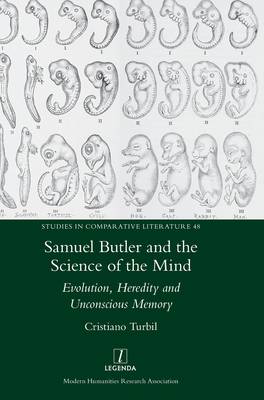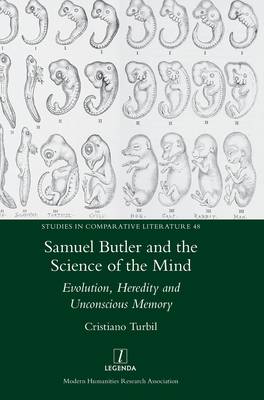
- Retrait gratuit dans votre magasin Club
- 7.000.000 titres dans notre catalogue
- Payer en toute sécurité
- Toujours un magasin près de chez vous
- Retrait gratuit dans votre magasin Club
- 7.000.0000 titres dans notre catalogue
- Payer en toute sécurité
- Toujours un magasin près de chez vous
Samuel Butler and the Science of the Mind
Evolution, Heredity and Unconscious Memory
Cristiano TurbilDescription
Darwin's theory of evolution was received with great interest all across Europe. The theory of evolution generated numerous debate among scientists, philosophers and the general public. Questions concerning the evolution of animals and humans, the existence of any blueprint or design in biology, and the relationship between Darwinism and Lamarckism rapidly became key topics of many scientific and philosophical texts, but also of novels and periodical articles. In Victorian England, Samuel Butler (1835-1902) critically discussed evolution in both novels and popular essays. Butler's idea of evolution rejected Darwin's theory of natural selection proposing instead a neo-Lamarckian philosophy of evolution called 'unconscious memory'.
Analysing Butler's writings, Cristiano Turbil guides the reader through the complexity of the continental evolutionary debate, presenting a new and original interpretation of Butler's scientific and literary work.
Cristiano Turbil is currently teaching history of medicine and science at University College London. His research encompasses the history of medicine and science in the late nineteenth and early twentieth century across Europe, literature and science and, more broadly, history of ideas.
Spécifications
Parties prenantes
- Auteur(s) :
- Editeur:
Contenu
- Nombre de pages :
- 156
- Langue:
- Anglais
- Collection :
- Tome:
- n° 48
Caractéristiques
- EAN:
- 9781781885536
- Date de parution :
- 28-09-20
- Format:
- Livre relié
- Format numérique:
- Genaaid
- Dimensions :
- 170 mm x 244 mm
- Poids :
- 453 g

Les avis
Nous publions uniquement les avis qui respectent les conditions requises. Consultez nos conditions pour les avis.






